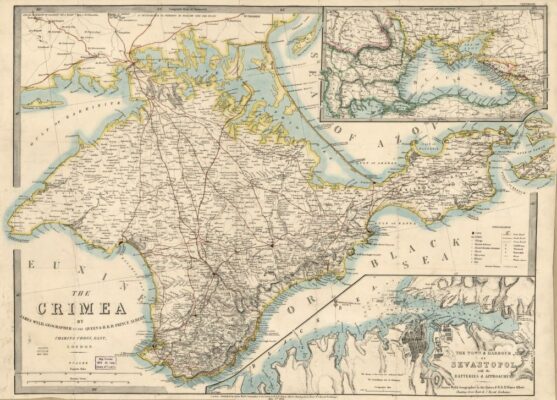
It might be the case that the conflict between Russia and Ukraine depends greatly on the fate of Crimea towards the end of the conflict. Russia occupied the Ukrainian region of Crimea in 2014 when the larger conflict began between the two nations. While little was done at the time by Western allies to stop Russia from annexing Crimea in 2014, the historical roots of Crimea has long been established in that part of the world for both sides of the conflict.
In the last few generations, the region of Crimea has gained increased importance as the main base of the Soviet and Russian Black Sea fleet, with the city of Sevastopol remaining as fleet command for the Russian Navy even after Ukraine gained its independence in 1991. This peculiar arrangement of having Russia’s Navy based in another country’s territory is strategically significant in the Black Sea region, linked by historical ties to soldiers from both nations.
During the Second World War, Sevastopol held out against heavy German bombardment for an extended period of time. The heroic stand against the Germans by the Soviets was one of the key battles during the Second World War, and showed the resolve of both the Russian, Ukrainian and other Soviet people’s against the invading Germans. The ability to stand to the last solider at Sevastopol is remembered as a defining moment in Soviet, and now current history, and is likely the reason why the port city still remained the home of the fleet after 1991.
During the Soviet era, the region of Crimea was re-designated as part of the Ukraine Soviet Socialist Republic for various reasons despite its past as the location of important battles in history. The claims Russia made in 2014 over Crimea however did not come from an agreed upon transition, nor did it meet some coordinated approach considering the importance of Sevastopol to Russian and Ukrainian strategic interests. The importance of Crimea for Ukraine as a catalyst for the conflict comes from the fact that there is more of a balance of backgrounds living in the region, unlike in some parts of Eastern Ukraine, so they are fighting to free Crimea with a good amount of local support. The catalyst for Russia besides the fleet is that it has openly focused on Crimean resources being limited as one of the reasons for occupying other parts of Ukrainian territory, and this narrative drove many Russians to support the war. Crimea therefore is one of the main points of conflict and pride between Russia and Ukraine, and the loss or gain of the territory would be considered a demonstrative victory in the current conflict.
The ability for Ukraine to retake Crimea depends a great deal on the continued support it would get from the West for the rest of the year and past 2024. One of the major hurdles to Ukraine is the level of support their offensive receives from NATO and other allies in achieving long term strategic goals. With the politics of support for the war slowly gaining push back in the West, and equipment slowly becoming harder to acquire or simply out of stock, Ukraine must measure its response to Russia by taking key strategic locations without overburdening its forces and amount of equipment. If Ukraine can push Russia back to the 2014 regions, it could likely put up a defensive posture in the medium term and hope to retake the Eastern regions and Crimea at some point in the future. It would be hard to guess the level of Western support Ukraine would receive if planning to push Russia out of the regions occupied in 2014, but removing Russian forces out of the regions captured in 2022 would be a positive outcome.
The loss of Crimea for Russia would demonstrate that decisions made by their leadership gave up more than they had to lose in invading Ukraine, in territory, lives, and pride. The end result may topple the current Government in Russia, as Russia was and still is seen by many as several times more powerful than Ukraine in resources, technology and manpower. The after-effect of a loss for Russia may have consequences on unity in the country, but more likely it will change how the periphery responds to Russia as a hegemon in the Caucasus region and between Russia’s ties with China and the Middle East. The Caucuses would likely abandon Russian ties fairly quickly, as seen with some nations currently. China would certainly take territorial and energy advantages from Russia in the East, or may simply tie Russia’s export economy further my linking their natural resource wealth to China’s manufacturing needs. Russian allies in the Middle East would have to find other powerful allies, or have to face the consequences of poor decisions in dealing with larger powers like the US, China, Europe and India while targeting their energy supplies or bilateral relations. For this reason, Russia may escalate the conflict with its rocket forces if they may lose Crimea and Sevastopol. The fall of Sevastopol has many dimensions and levels of consequences for Russia, especially for the final narrative of the current war.